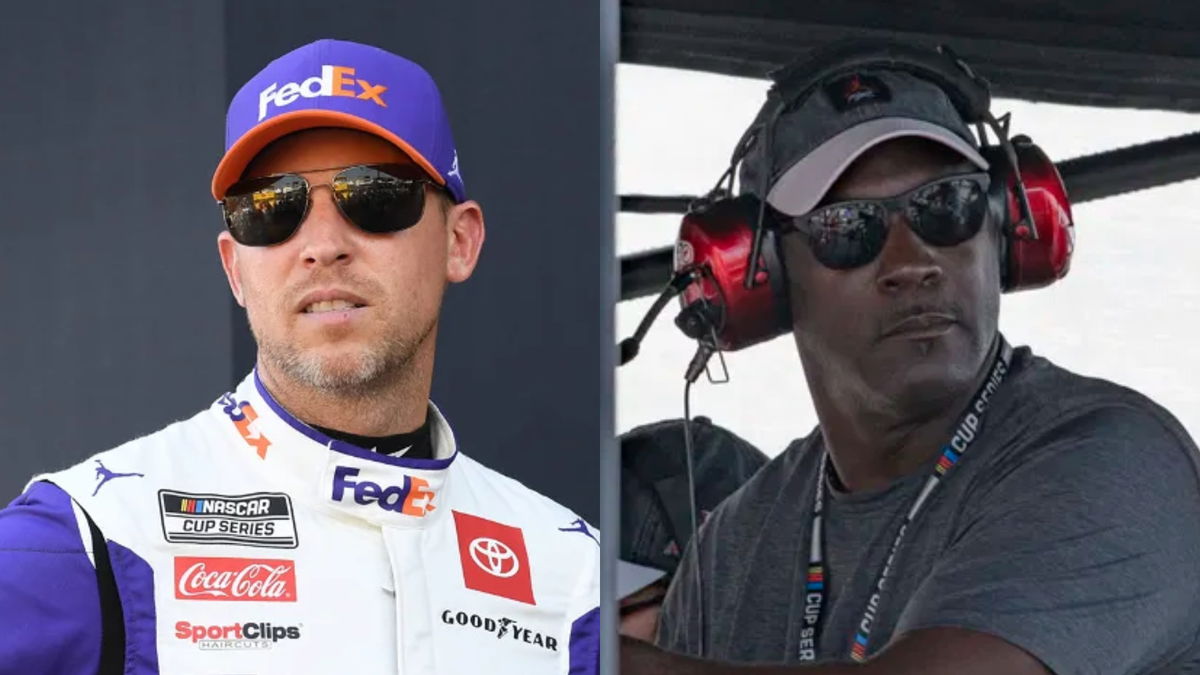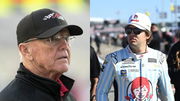
Imago
Image Credits: Imago

Imago
Image Credits: Imago
The NASCAR and 23XI Racing + Front Row Motorsports lawsuit seems to be getting more and more tangled with each passing day. Both sides are preparing aggressively for the scheduled December 1 jury trial, but recent court filings also indicate an ongoing, albeit difficult, push for a resolution.
Watch What’s Trending Now!
NASCAR recently filed a motion with the U.S. District Court asking for a judicial settlement conference, acknowledging that previous mediation efforts had been “exhausted.” The court subsequently ordered a settlement conference to take place on October 21, continuing efforts to resolve the high-stakes dispute before trial. But the two suing teams think otherwise.
ADVERTISEMENT
23XI and FRM argue that NASCAR policies undermine team value
The core of the response filed by 23XI Racing and Front Row Motorsports to NASCAR’s motion for summary judgment is a forceful rejection of NASCAR’s legal arguments, asserting that the case involves fundamental antitrust claims that must be decided by a jury. Their filings argue that NASCAR’s attempt to dismiss the lawsuit is riddled with legal and factual inaccuracies, as encapsulated in the statement:
“The motion is a meandering combination of mischaracterizations of Plaintiffs’ claims, misstatements of governing antitrust law, and disputed facts which must go to trial.”
Denny Hamlin’s 23XI and FRM maintain that the evidence of NASCAR’s monopolistic and monopsonistic power over premier stock car racing teams is clear and requires a trial to fully adjudicate the harms caused by the current revenue model and restrictive agreements.
ADVERTISEMENT
The plaintiff teams have systematically countered NASCAR’s attempts to frame the dispute as a simple contract disagreement, instead focusing on the alleged monopsony power of NASCAR. They argue that NASCAR is essentially the sole buyer of premier stock-car racing services in the United States, allowing it to dictate the terms of the Charter Agreement and suppress team revenue.
This alleged power is central to the claim that NASCAR pays below-market terms to premier stock car racing teams, harming team enterprise value. The teams contend that without sufficient revenue, long-term stability, and the enterprise value of the racing organizations, which are essential to attracting sponsors and investors, are severely undermined, forcing teams into a constant state of financial vulnerability.
ADVERTISEMENT
23XI/FRM say case shouldn’t be tossed b/c:
-NASCAR pays below-market terms to premier stock car racing teams, harming team enterprise value
-No alternative for teams b/c NASCAR sanction agreements keep tracks from having other stock-car events
-Cant run Next Gen car anywhere else https://t.co/iji7tCAXJ2— Bob Pockrass (@bobpockrass) October 16, 2025
A critical pillar of the teams’ argument is the absolute lack of a viable alternative market for premier stock car racing. The teams assert that there is no alternative for other teams because NASCAR sanction agreements keep tracks from having other stock-car events, effectively foreclosing competition from other promoters or series.
Furthermore, the specialized nature of the equipment, particularly the Next Gen car, means teams cannot run these cars anywhere else without massive and prohibitive retooling or legal risk, trapping them within NASCAR’s ecosystem. This lack of an alternative market solidifies the teams’ legal definition of the relevant market as premier stock-car racing, in which NASCAR allegedly possesses illegal monopoly power, as per them.
ADVERTISEMENT
The earlier support statements NASCAR included from other team owners, who signed the agreement and urged for resolution to maintain the stability of the charter system, were countered by the suing teams’ attorney, Jeffrey Kassler, who asserted that those statements merely underscore the economic reality that teams cannot survive without them and do not excuse NASCAR’s alleged anticompetitive conduct.
Therefore, the lawsuit outcome will profoundly impact the economic structure and team ownership model of NASCAR for decades to come, which is exactly why 23XI and FRM believe that the case shouldn’t be tossed.
On the other hand, the teams reveal explosive NASCAR texts, showing how the lawsuit is driven by both personal and strategic stakes.
ADVERTISEMENT
Top Stories
Ousted Hailie Deegan Makes Shocking NASCAR Return After Failed IndyCar Experiment

Bubba Wallace’s $218.94B Sponsor’s Exit Triggers Unlikely 23XI–NASCAR Partnership

NASCAR Rumors: Brad Keselowski To Cut Ties With Ford for New Manufacturer

Noah Gragson Loses Out on Billion Dollar Partner to Joe Gibbs Weeks Before 2026 Season

Carl Edwards’ Iconic Car Set to Return at Daytona 500 with Brad Keselowski’s RFK

Texts reveal NASCAR’s fear of losing teams amid competitive threats
Just when it seemed like NASCAR and the two teams might reach a settlement, a new twist dropped days before the hearing. 23XI and FRM filed court documents revealing text messages sent years ago, shining light on why the antitrust lawsuit was filed in the first place.
The texts, shared between NASCAR President Steve O’Donnell and Executive Vice President Ben Kennedy, reveal a deep concern over potential team defection and outside competition. O’Donnell spelled out the stakes bluntly, saying, “I don’t ever want to see you in that position. We need to lock ourselves in a room and war-game this thing. Future of the sport is on the line and we need to assume — unfortunately — that 30 of 36 drivers will leave us and all owners will leave us… if we don’t want that to be the case, what should we do and what do we really think is fair?”
ADVERTISEMENT
Kennedy emphasized forward-thinking solutions, including revenue diversification and international opportunities. The messages also provide context for the 2024 charter system shake-up.
While most teams agreed to NASCAR’s new terms, 23XI Racing and FRM refused, arguing that the agreements were monopolistic. Beyond money, the feud appears personal, highlighting a fight to protect both competitive fairness and the “soul of the sport,” as the teams continue to resist a settlement.
ADVERTISEMENT
ADVERTISEMENT
ADVERTISEMENT
